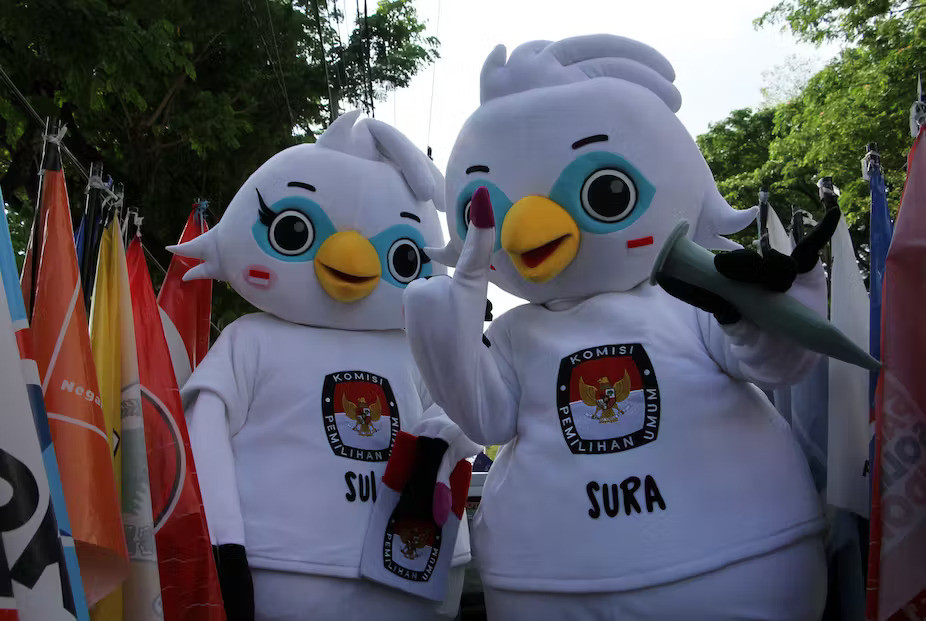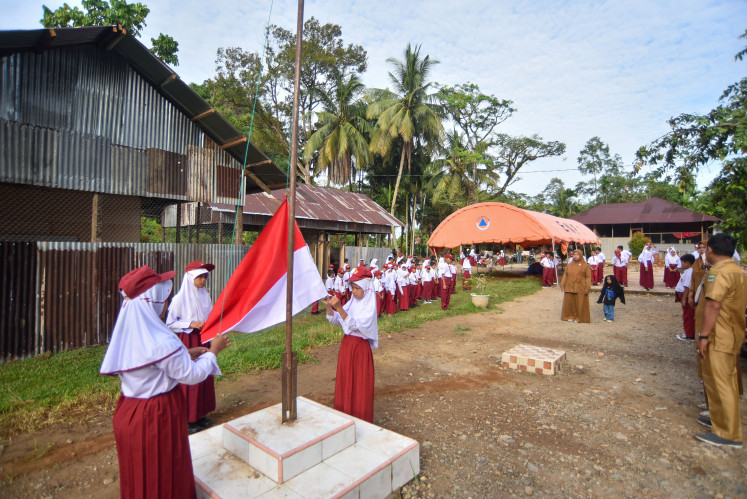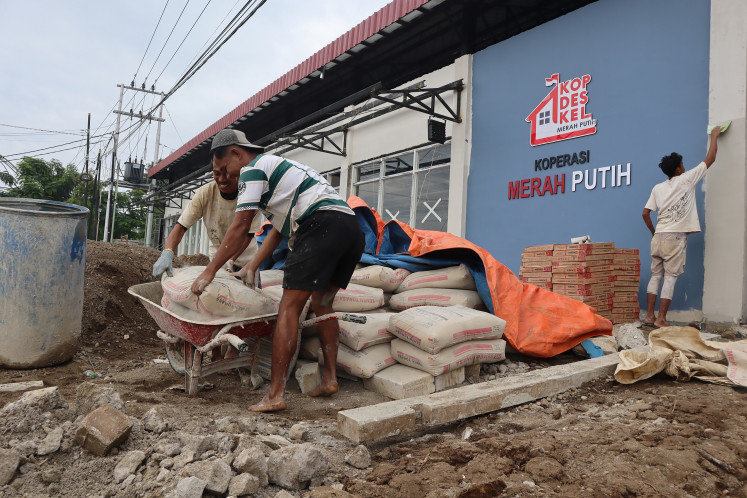Popular Reads
Top Results
Can't find what you're looking for?
View all search resultsPopular Reads
Top Results
Can't find what you're looking for?
View all search resultsThese unholy alliances undermine Indonesian democracy
The high presidential threshold not only forces these unholy alliances we are seeing, but it also severely limits the number of candidates, and hence the choices available to voters.
Change text size
Gift Premium Articles
to Anyone

The alliances of political parties to put up common candidates for the presidential election in 2024 may comply with electoral law, but when parties that have little in common join hands it raises the question of what kind of government we are going to get, and whether ideological principles have been compromised in forging these coalitions.
Unlike in most other democracies, the political alliances in Indonesia are created before rather than after the election results are known. Going by past elections, the winning coalition will expand as soon as the results are known. The current administration of President Joko “Jokowi” Widodo, for example, is made up of six of the eight political parties in the House of Representatives. This effectively renders the opposition weak and ineffective.
This coalition forming seems to have become an accepted feature of Indonesia’s multiparty elections since the nation became a democracy at the turn of the millennium. No one asks whether the interests of the people or voters are truly served in this way.
Electoral law mandates that any political party contesting a presidential election must name its presidential and vice-presidential candidates, but then restricts admission by setting a high threshold: 25 percent of the vote in the previous election, or 20 percent of the House seats. Alternatively, parties can pool their votes or their current House seats to meet the threshold and put up common candidates. Hence the alliances we are seeing now.
Parties are caught in a dilemma. On the one hand they are competing against one another in the legislative elections, and on the other, they must join hands to nominate common candidates in the presidential election. These elections, and the election for the Regional Representative Council and the local legislative councils will take place simultaneously on Feb. 14.
We now see alliances between parties that ideologically make little sense, but everyone seems to have accepted it unquestionably. Parties have one common goal, to win the election and share power, never mind their ideology or their programs. Forget what voters want.

Now that three presumptive presidential candidates are almost certain to move forward when nominations close in Nov. 24, parties are fighting over the slot for the running mates. Again, their choices will be decided through horse-trading.
Former Jakarta governor Anies Baswedan is supported by a coalition involving the secular-nationalist National Democratic Party (NasDem), the Islamist Prosperous Justice Party (PKS) and the National Awakening Party (PKB), which relies on the support of members of Nahdlatul Ulama, Indonesia’s largest mass-based Islamic organization.
Defense Minister Prabowo Subianto is supported by Gerindra, a secular-nationalist party, which he founded and chairs, the Golkar party, also secular-nationalist, and the National Mandate Party (PAN), which is a semi-Islamist party.
Former Central Java governor Ganjar Pranowo is supported by his own center-left Indonesian-Democratic Party of Struggle (PDI-P) and the Islamist United Development Party (PPP).
The Democratic Party this month quit the coalition supporting Anies as soon as NasDem, the largest in the group, gave the running mate slot to PKB chair Muhaimin Iskandar. The PKS will decide whether to endorse Muhaimin or not this Friday. If not, will it quit the alliance?
The Democratic Party, which had been lobbying for the slot for its chair Agus Harimurti Yudhoyono, now seems to have lost a sense of direction about where to throw its support.
This raises speculation of a possible meeting between the Democrats’ chief patron Susilo Bambang Yudhoyono and PDI-P chair Megawati Soekarnoputri. There is no love lost between the two since 2004 when Yudhoyono, who had served under Megawati’s presidency in 2001-2004, beat her in the presidential election that year, and again in 2009.
But Yudhoyono is going into this meeting, if it takes place, as the weaker of the two with little bargaining power. It is not likely that Megawati, who makes all the big calls in the PDI-P, will give Ganjar’s running mate slot to Yudhoyono’s son Agus Harimurti.
The other option for the Democratic Party is to join the alliance behind candidate Prabowo. In 2019, the Democratic Party joined the Prabowo coalition (which went on to lose, again), reluctantly at the last minute and only to comply with the law, telling its supporters that they did not have to vote for Prabowo.
Nothing is set in stone, and these coalitions can still change as parties jostle for the vice-presidential slot before nominations close in November.
These alliance formations, and their breakups, are interesting, although tiresome by now to follow, with the media diligently reporting every single development and every single rumor. What purpose do they serve the voting public, other than confusing them? Most probably, they do not care anyway. They know too that the losing parties that they support will try to join the winning coalition as soon as the results are known.
The most bizarre alliance, but not unusual in Indonesian politics, is when Prabowo joined the Jokowi cabinet as defense minister after he lost his presidential bid in 2019 for the second time, both times to Jokowi, in 2014 and 2019.
The high presidential threshold not only forces these unholy alliances we are seeing, but it also severely limits the number of candidates, and hence the choices available to voters.
Three candidates in 2024 is still better than two in 2014 and 2019, but voters could do with more. In 2004, when Indonesia introduced direct presidential elections, voters had five pairs of candidates to choose from.
This flaw in the electoral law is unlikely to be amended, because any such initiative could only come from the big parties, which have no interests in changing a system that works in their favor. The Democratic Party had its chance when it dominated the House in 2009-2014, but turned a blind eye. Now as a small, and declining and confused party, it must regret the missed opportunity.
In 2024, we are again likely to see the formation of a new rainbow coalition government with the winning team expanded to include just about everyone else, leaving a small and ineffective opposition in the House. This means that all the political wheeling and dealing will take place within the coalition government, behind closed doors and without public participation, as we have seen under the current Jokowi administration.
And this is a sure recipe for a dysfunctional democracy.
***
The writer is senior editor at The Jakarta Post.










